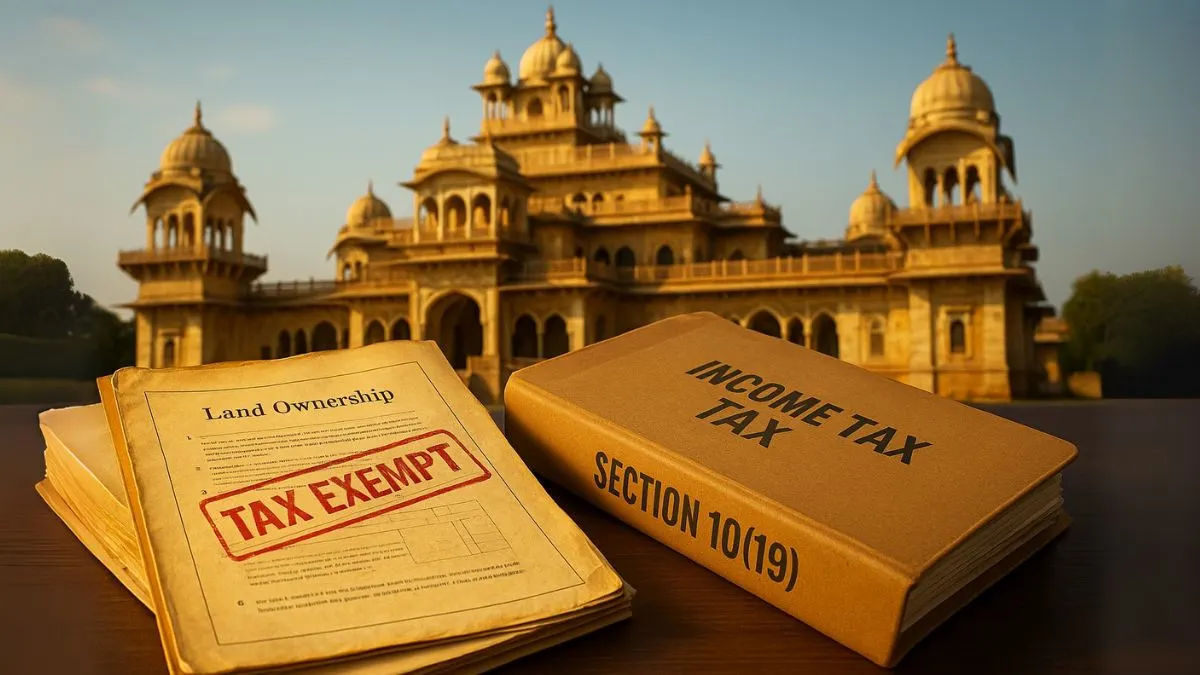
The Government of India has always recognized the sacrifices made by members of the armed forces. To honor their contribution, specific provisions in the Income Tax Act grant tax relief to their families. One such important provision is Section 10(19) of Income Tax Act, which deals with exemptions for family pension received by the widow or children or nominated heirs of armed forces personnel who have laid down their lives in the service of the nation.
This section is not just a legal clause; it is a recognition of the selfless service rendered by soldiers & the financial challenges their families face after their demise. Let’s explore what Section 10(19) means, who can claim it, and how it provides relief.
What is Section 10(19) of Income Tax Act?
Section 10(19) specifically exempts from tax the family pension received by the widow or children or nominated heirs of an individual belonging to the armed forces, including paramilitary forces, who has died in the course of operational duties.
Unlike ordinary pensions, family pension is taxable under the head “Income from Other Sources.” However, thanks to this provision, eligible family members are saved from additional tax burdens.
Thus, Section 10(19) provides an exemption for the family pension in recognition of the extraordinary nature of the sacrifice."
Key Features of Section 10(19)
- Applicability:
- Applies only to family pension received by the widow, children, or nominated heirs of armed forces personnel.
- Does not apply to every government employee, only defense & paramilitary forces.
- Nature of Exemption:
- The entire family pension amount is exempt from tax under this section.
- Gratuity Component:
- In some cases, Section 10(19) also provides a tax exemption for gratuity received by the legal heirs of such personnel.
Also Read: Deductions from “Income from Other Sources” Explained
Family Pension vs. Regular Pension
To understand the significance of this section, it’s important to differentiate between family pension & regular pension:
- Regular Pension: Income received by a retired employee for past services. It is taxable under the head “Salaries.”
- Family Pension: Income received by the widow, children, or heirs after the death of the employee. Normally taxable under “Income from Other Sources,” but exempt under Section 10(19) in the case of armed forces personnel who die during service.
Why This Exemption Exists
Soldiers and defense personnel face risks far greater than ordinary government employees. The State acknowledges that when these individuals make the ultimate sacrifice, their families should not be burdened with tax liabilities.
By ensuring that the family pension received by the widow or children or nominated heirs is fully exempt, Section 10(19) extends much-needed financial security.
Example for Better Understanding
Suppose Major A was serving in the Indian Army and lost his life in an operational duty. His widow receives a family pension of ₹50,000 per month.
- Normally, this ₹6,00,000 annual pension would be taxed under “Income from Other Sources.”
- However, thanks to Section 10(19), the entire ₹6,00,000 is exempt from tax.
- If she also receives a gratuity, that too enjoys a tax exemption for gratuity under the same section.
This provides huge financial relief to the bereaved family.
Also Read: Understanding Pension Fund Deductions
Benefits of Section 10(19)
- Complete Tax Relief: Full exemption from family pension tax.
- Security for Families: Helps widows and children sustain themselves financially.
- Acknowledgement of Sacrifice: Recognizes and honors the contribution of armed forces personnel.
- Coverage of Gratuity: In some cases, extends to gratuity benefits too.
Common Misunderstandings
- Not all family pensions are exempt—this is limited to armed forces & paramilitary forces.
- Other government employees’ families can claim limited deductions under Section 57(iia), but not full exemption.
- Some believe the exemption is capped, but under Section 10(19), the entire amount is exempt.
How to Claim Exemption Under Section 10(19)
- While filing the Income Tax Return (ITR), ensure that the family pension income is shown under exempt income.
- Supporting documents such as death certificate, pension order, and service details may be required in case of scrutiny."
- Legal heirs (widow, children, or nominated heirs) must ensure their PAN is linked to the pension account for smooth filing.
Judicial Perspective
Courts have upheld that Section 10(19) is a welfare provision & must be interpreted liberally to give maximum relief to the families of deceased armed forces personnel. Any narrow interpretation would go against the intent of Parliament.
Also Read: Gratuity & Taxes: The Section That Can Put More Money in Your Pocket
Conclusion
Section 10(19) of Income Tax Act is a compassionate and practical provision. By exempting the family pension received by the widow or children or nominated heirs, and in some cases extending to gratuity, it ensures that the families of brave soldiers are not burdened with taxes.
👉 If your family receives such pension benefits and you’re unsure how to claim exemption correctly, our experts at Callmyca.com can help you file your returns hassle-free & ensure you don’t miss out on your rightful exemptions.











